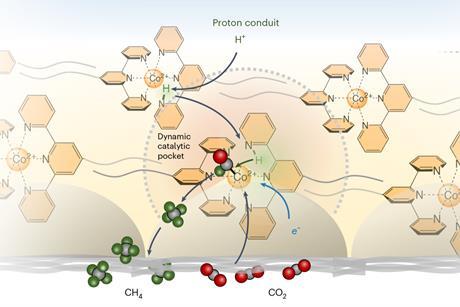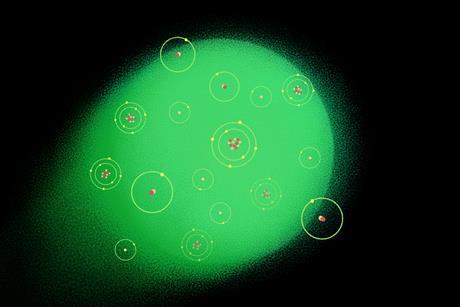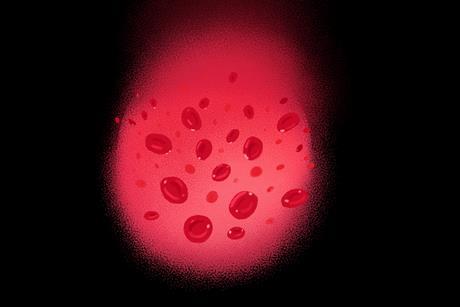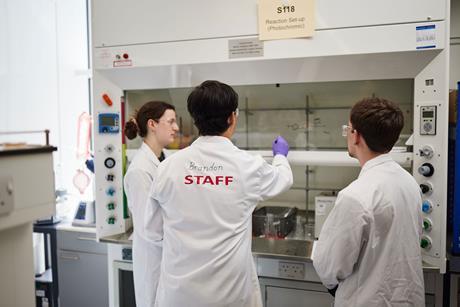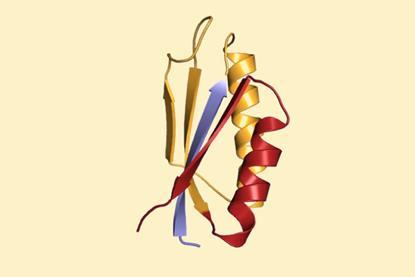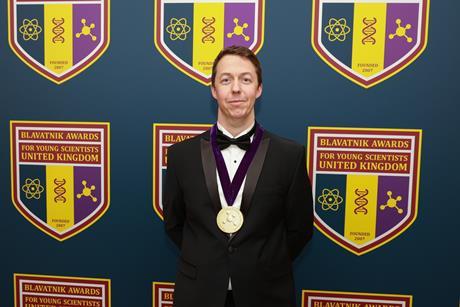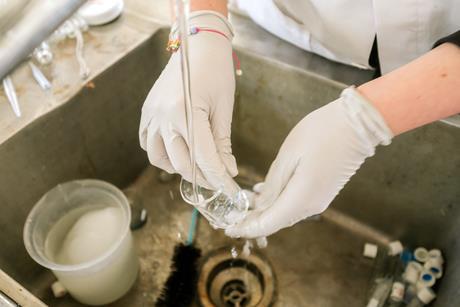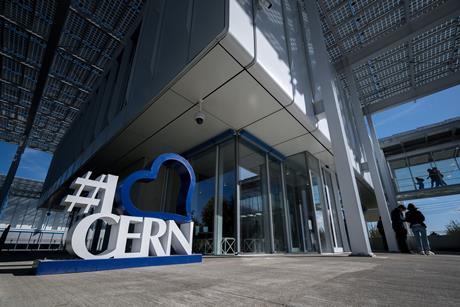Catalyst uses electricity to convert carbon dioxide into methane
Acting at the gas-liquid-solid interface to permit carbon dioxide and water to react, the catalyst achieves 80% efficiency
Sunlight-powered device harvests lithium from salty water
Low-energy device is a ‘step forward’ for sustainable lithium mining
Atom-swapping reaction turns furans into pyrroles
Skeletal-editing technique offers easy way to modify heterocyclic structures
Study shows how bacterium tweaks its lipopolysaccharides to survive chill of Antarctic lake
Adaptations seem at odds with survival strategies adopted by related species
Mechanochemistry can extract edible proteins from moor grass
Photoswitch brings energy storage and a cool efficiency boost to photovoltaics
A new gold standard in selective nitrobenzene hydrogenation
Nanotorus made from pure antimony paves way for other all-metal structures
Quantum tunnelling explains why several supposedly stable benzene isomers will never be made
One-electron covalent bond between two carbons pushes limits of bonding
Highlights
How satellite remote sensing is enhancing our understanding of Earth
Instruments in space have studied the planet’s atmosphere and surface, and are now being joined by powerful new ones, finds Andy Extance
Analysing a chemist’s wish-list
Analytical techniques have come a long way, but what does the future hold? Rachel Brazil asks the experts what they’d like to see
Blood biopsies for cancer
Testing small amounts of blood for the presence of disease markers could revolutionise how we detect cancer. Clare Sansom reports
The undergraduate lab practical transformation
Nina Notman speaks to the educators leading the charge to revamp how university students learn in the laboratory
The GLP-1 weight loss revolution
Glucagon-like peptide-1 agonist drugs, such as semaglutide, could save countless lives at risk due to diabetes and obesity. Rachel Brazil looks at the difficulties in making the peptides themselves, and what’s coming next
Topics
Proteins with multiple structures open up AlphaFold’s black box
AI prediction model often fails to identify fold-switching, helping show how it works and the limits of its usefulness
Electrochemical series for materials makes predicting oxidation states easy
Machine-learning trained model could open up new opportunities in materials discovery
Algorithm predicts bitterness from mass spectra data alone
New tool could find use in food science and drug development
Teaching enzymes new reactions through genetic code expansion and directed evolution
Anthony Green’s research group at the University of Manchester, UK, reengineers enzymes to have catalytic functions beyond those found in nature
Lead found in Beethoven’s hair reveals new insight into his ailing health
Kidney and liver problems that killed the composer, as well as hearing loss, are associated with high lead levels
Chemical analysis reveals origins of early English silver coins
Byzantine silver plates were melted down to make many of the first Anglo-Saxon coins
Using analytical chemistry to illuminate the unlisted ingredients in tattoo inks
Discovery that more than 80% of the tattoo inks sampled had unlisted ingredients prompts New York-based lab to launch a website providing chemical information to tattoo artists and their clients
Science needs to get its house in order when it comes to energy use and waste
Labs have an outsized environmental footprint but solutions are within reach
Redox reactions ‘mine’ old fluorescent light bulbs for europium
In just three simple steps rare earth element can be recovered, avoiding ‘ecologically devastating’ mining
Biomass, plastic waste and carbon dioxide feedstocks key to cutting chemical industry’s emissions
Royal Society report warns that without intervention defossilisation of the chemicals sector will take many decades
Analysis of three French chemistry labs shows how they could halve their carbon footprint by 2030
Open-source tool helps researchers evaluate a series of carbon mitigation strategies
There’s a world of chemistry in water
Managing our most precious resource
Riding the microwave: three chemists share their stories
Disagreements surrounding non-thermal effects didn’t stop microwave reactors becoming a standard part of laboratory life
The grim reality facing chemists in Gaza and Israel a year into war
Escalating Israel–Hezbollah conflict and Gaza war increases the pressure and threat to researchers in the region
Cern to end cooperation agreements with Russian-based researchers
From November, 500 scientists affiliated with Russian institutions will be cut off from Cern research facilities due to ongoing war in Ukraine
‘Stealth corrections’ uncovered in scientific journals, raising transparency concerns
Scientific integrity sleuths discovered 131 cases of publishers making unacknowledged changes
Scientific freedom lacking in Africa, Unesco finds
Africa represents 12.5% of world’s population but less than 1% of its research output
The refugee organic chemist
After a harrowing journey from his native Afghanistan one refugee chemist has found safety in a postdoc position in the UK
